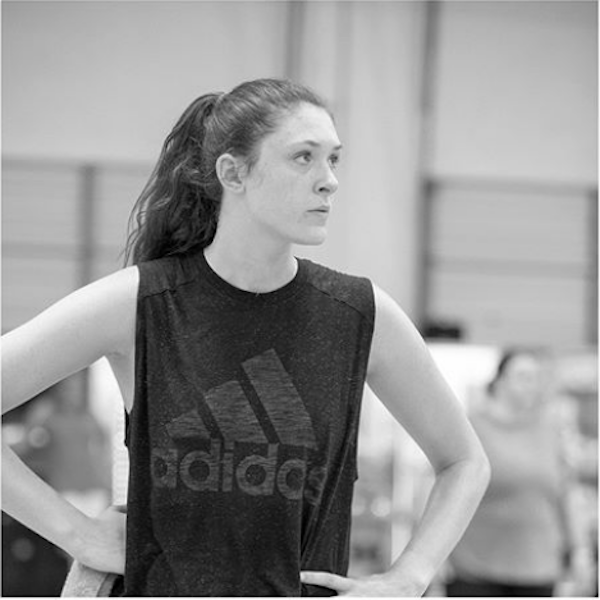When you grow up being a shorter player in the sport of volleyball, you know that you’re always going to have to do a little more than the taller players. You have to know the game better, work harder, train harder, figure out different tricks that can give you an advantage. Playing with a chip on your shoulder helps. You are out there to prove everyone wrong.
The first thing you have to do is develop a mentality that height doesn’t matter. What does matter are:
• Skills
• Knowledge of the game, your teammates
and your opponents
• Leadership qualities
• Ability to make those around you better
Chip on Your Shoulder
It’s extremely important that you never give up, no matter what coaches, peers or anyone tell you. I never knew I would be an Olympian, but I did know that I loved the game, knew how to work hard and hated losing.
All of those things kept me going during the tough times.
I remember when I was playing in the 14 and under age group. After JO’s and The Volleyball Festival (in my day, we could play in both of those tournaments), my teammates and I tried out for the Jr. National Team.
I had the best tryout ever. I won all the competitions, got along well with everyone and felt that I had proved my skill and worth. And I left feeling very excited about my chances to make the team or at least to be invited to a tryout for the team.
A couple of weeks later, I was notified that neither I nor my teammates had made it. I was pissed, to say the least. But I didn’t let it stop me. And that is when the chip on my shoulder developed.
From then on, I practiced and played at another level.
It was time to prove myself to the volleyball world.
If you’re a smaller setter, you’ll never be denied a position on the court if you are a leader and make the other players around you better.
As you work on your setting, work on your communication just as much. Work on how to talk to your teammates. Take responsibility and make your hitters better.
Even when it’s not your fault or you don’t think it is, focus on how you can fix it, not on assessing blame. Talk to your hitters all the time. Talk to your passers all the time. Work on having a good relationship with your coach.
All of these things will make it not matter that you are a smaller setter.
With that said, let’s talk specifics. Over the next few weeks, we’ll cover how to improve your skills, really understanding the game, working on leadership and how that helps make your teammates better too.
Follow me we’ll tackle all this together!
Lindsey Berg founder of “THE CUORE PROJECT”. An all-digital programming network featuring films, editorials, and podcasts with the mission to share stories and information to educate and inspire the next generation of female volleyball athletes.
[bsa_pro_ad_space id=22]

